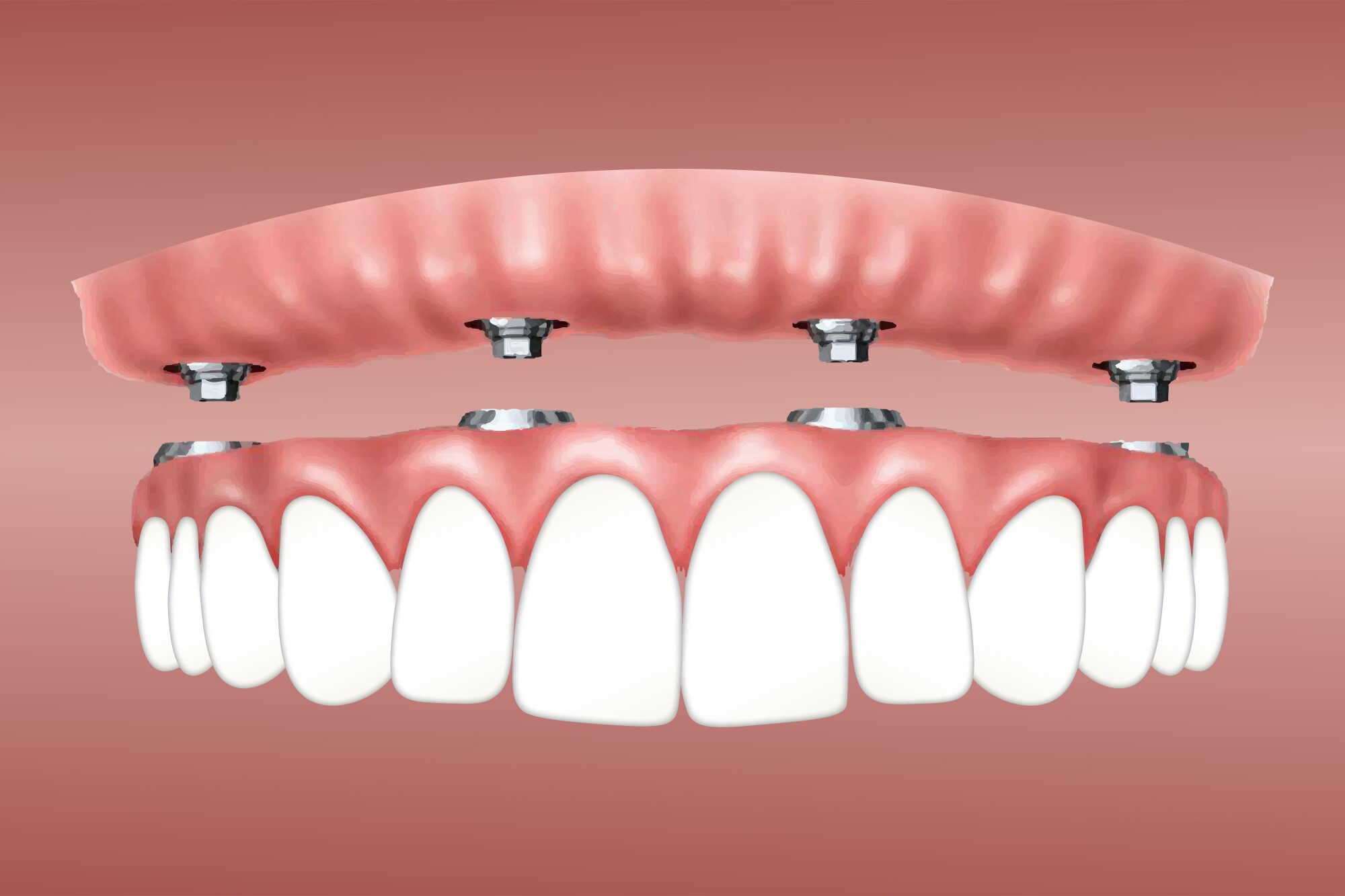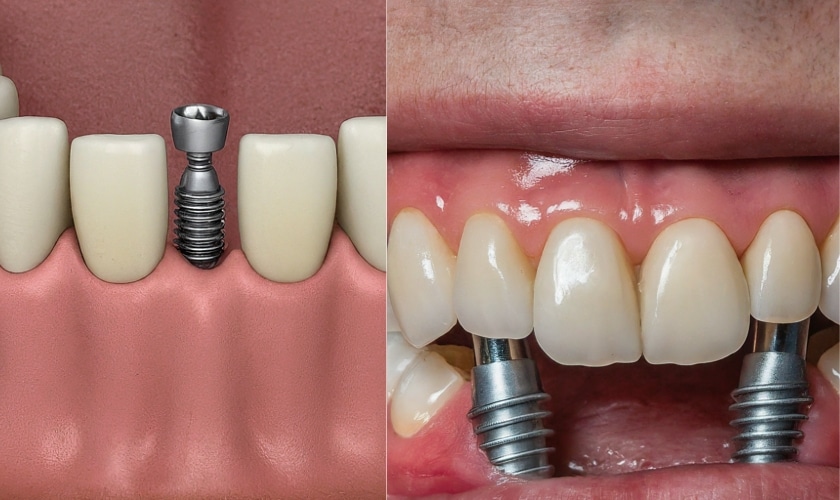Getting The Dental Sense To Work
Table of ContentsOur Dental Sense StatementsThe Main Principles Of Dental Sense Little Known Facts About Dental Sense.The Best Strategy To Use For Dental Sense
are medical devices surgically dental implanted into the jaw to recover a person's capacity to eat or their appearance. They give assistance for artificial (fake) teeth, such as crowns, bridges, or dentures. When a tooth is lost as a result of injury or illness, a person can experience difficulties such as fast bone loss, defective speech, or adjustments to eating patterns that lead to pain.Oral dental implant systems are composed of an oral implant body and oral implant joint and might likewise include an abutment fixation screw. Front tooth filling. The oral implant body is surgically inserted in the jawbone instead of the tooth's origin. The oral implant abutment is normally connected to the dental implant body by the abutment fixation screw and extends with gums into the mouth to support the affixed artificial teeth
Smoking might influence the recovery procedure and lower the long-lasting success of the dental implant. The recovery procedure for the dental implant body may take a number of months or longer, throughout which time you typically have a short-lived joint instead of the tooth. the dental implant procedure: Meticulously follow the oral hygiene directions provided to you by your oral service provider.
Facts About Dental Sense Revealed
Implant failing can result in the need for one more medical treatment to deal with or change the implant system. Restores the capability to chew Restores cosmetic appearance Helps maintain the jawbone from reducing as a result of bone loss Maintains the wellness of the surrounding bone and periodontals Aids maintain adjacent (neighboring) teeth steady Boosts lifestyle Damages to surrounding natural teeth throughout dental implant positioning Injury to the surrounding tissues throughout surgery, such as sinus perforation Injury throughout surgery (as an example, crack of surrounding jawbone) Poor feature, such as seeming like the teeth do not attack together typically A sensation that the tooth hangs or turning in position resulting from an abutment screw loosening Implant body failing (looseness of the implant body) due to systemic infection, which might be more probable in clients with uncontrolled diabetics issues due to local infection in bone and periodontals sustaining the dental implant body as a result of postponed healing, which might be more probable in people that smoke Difficulty cleansing the gum tissues around the implant, resulting in poor oral hygiene Unattended gum illness Post-surgical numbness as a result of nerve impingement or damage Constantly notify healthcare carriers and imaging specialists that you have dental implants prior to any kind of magnetic vibration imaging (MRI) or x-ray procedures.
FDA is not familiar with any damaging occasions reported for MRI or x-ray treatments with oral implants. Dental implants systems are typically constructed from materials that comply with worldwide agreement standards of the International Organization for Standardization (ISO) or ASTM International. These standards have information of what makes a safe material.

An oral implant is a framework that replaces a missing out on tooth. With screw-like devices, the cosmetic surgeon inserts an implant right into the jawbone, and it serves as an anchor for a fabricated tooth, called a crown. A device called a joint attaches the man-made tooth to the dental implant. The crown is custom-made to fit the individual's mouth and match the color of their teeth.
Dental Sense - Questions
Some individuals are not qualified for dental implant surgical procedure. It is for oral surgeons to run on people with: acute illnessuncontrollable metabolic diseasebone or soft tissue disease or infectionIf these issues are fixed, a person can have the surgical procedure. In, oral specialists avoid running on individuals with: If individuals with any one of the above go through Click This Link oral implant surgical treatment, there is a higher risk of the dental implant falling short.

Oral dental implant surgery is a customized process. It's not the same for everybody. The following gives a basic overview of what you can expect your dental practitioner, dental doctor, periodontist or prosthodontist to do: Put the implant surgically. Provide you time to recover. Connect the blog post and last crown, bridge or denture.
Next off, your doctor will meticulously place the oral implant into your jaw. Lastly, your cosmetic surgeon will rearrange your gums and shut the laceration with stitches. If your implant is near the front of your mouth, your dental expert will certainly make a short-lived tooth for you to put on up until you recover. This way, you won't have a space in your smile while you recover.
A Biased View of Dental Sense
Your supplier can inform you what to anticipate in your circumstance. During the recovery stage, your jawbone must fuse to the oral implant. This process, called osseointegration, is vital for stability and long-lasting success. This procedure can take anywhere from three to nine months. In many cases, it may take longer.
Once your implant heals, your dental expert can attach the abutment (tiny port article) and your last reconstruction (crown, bridge or denture). This typically takes about one hour to finish and may require a 2nd small surgery. You shouldn't really feel any type of pain throughout your oral implant treatment since your service provider will make use of drug to numb your periodontals.
Comments on “Getting My Dental Sense To Work”